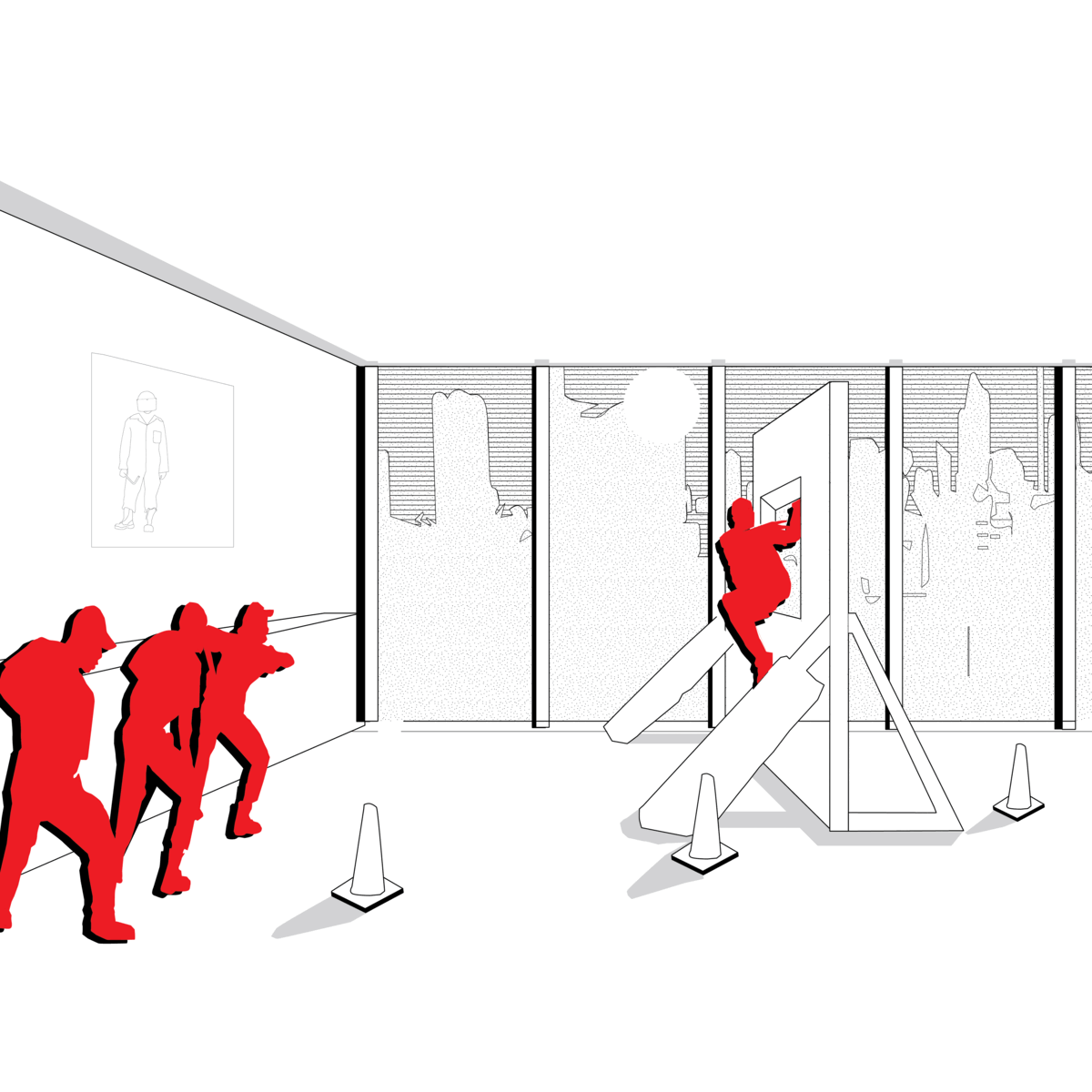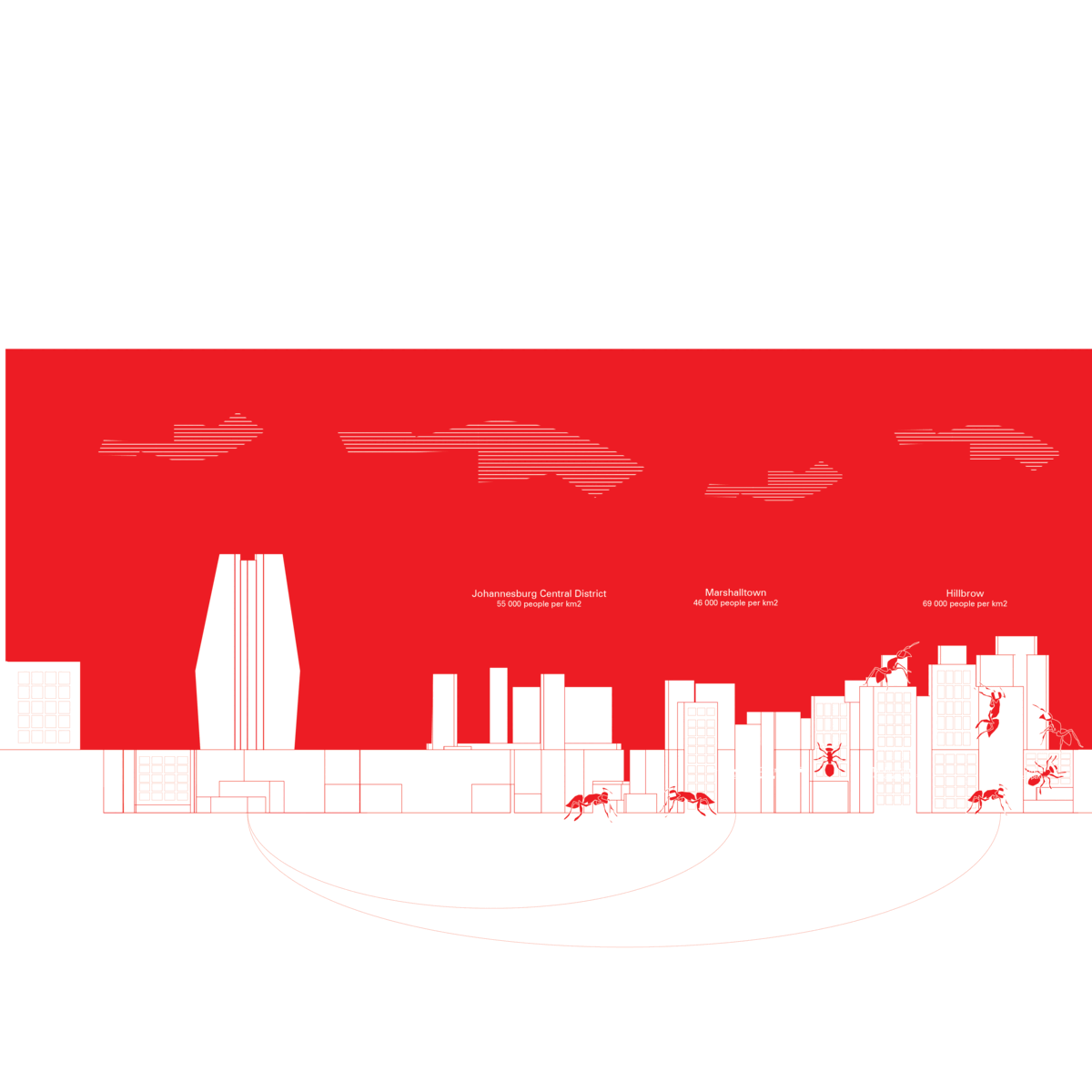
Private security in SA
Red Ants security training happens on the upper floors, reached via the main lift lobby applicants complete a fitness test and basic simulations of entering a building, new applicants move down each level and complete their entry test on the fourth floor. After an eviction order has been executed the Red Ants are contracted as the professional to execute the command. These staff have undergone basic security training usually lasting less then a week. Red Ants Security has also worked closely with the South African Police to tackle security related incidences such as removal of illegal electrical connections in various townships. The Company has also partnered with Municipalities and State-Owned Enterprises (SOEs) such as: National government, City of Cape Town, Johannesburg City council, Eskom, Transnet, Human Settlements, Local municipalities and more.

The Economy of Eviction
Hillbrow, Johannesburg
The privatization of eviction services allows the government to charade itself behind the murky cloak of profit-based service delivery, incentivized by the efficiency, ruthlessness, and success of operations.
The opposing sentiment, whilst perhaps romanticized in the case of dire living circumstances, advocates protection of the localized forms of habitus which the inner-city has produced. Here the inner-city is embraced on its own terms. Rather than being read in terms of its deficits and failures to meet the standards of European urbanity, or achievements in this quest, it is appreciated for its own idiosyncrasies, experiences, and possibilities. The new democratic dispensation and socio-political context of South Africa’s racial transition and new forms of African Urbanity.

PSIRA Registration
After successfully passing the final entrance test, new Red Ants complete their PSIRA registration in the in-house registration office on the third and fourth floor. Security is the most apparent instance where privatization is rapidly outpacing the state. In 1997 there were roughly the same amount of police officers as active security guards (110 000 to 115 000). Since then, the police force has increased by approximately 31% to account for population growth and a larger mandate to support and provide safety to South Africa’s citizens. At the same time, private security has ballooned by 383% (to 557 000) . Walled suburbs and control rooms have become usual in South Africa’s suburbs - Making safety as a service one of the most important factors in increasing the perceived value of property within the city.

The Future
The Red Ants
The market-led regeneration of privatized state functions resemble closely the neoliberal framework which has become hegemonic across the globe, alternative social priorities, policy frameworks and cultural and contextual settings are able to temper the harmful side of capitalized service delivery in order to produce alternative and complex identities and outcomes.

The Build Back Better Program
In a fragmented and privatized society, security personnel in CIDs are also shown to focus a great deal of attention on policing ‘unwanted’ populations, particularly the homeless and beggars. Furthermore, many people have been evicted from buildings before their refurbishment. Recent legislation used under the banner of the urban renewal of Johannesburg CBD has allowed the state to expropriate dilapidated and hijacked buildings. A programme initially termed the Bad Buildings Programme. It later rechristened the Better Buildings Programme (BBP) worked on the principle that the City Council would repossess buildings which had fallen into decay and whose arrears amounted to more than their market value and then sell them to pre-approved developers at reduced rates). A condition of this programme was that companies acquiring and renovating buildings would have to cater to low-income communities. The Johannesburg Housing Company (JHC), the city’s predominant social housing institution, received several buildings through this programme.





